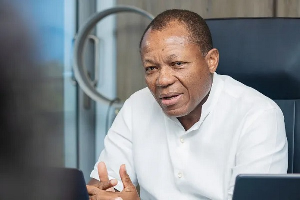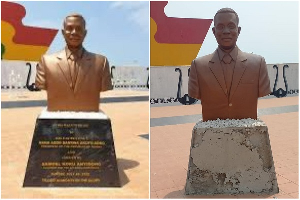The Development Bank Ghana (DBG) plans to invest at least GH¢100million annually in the domestic textiles and garments industry over the next three years.
This was announced during a memorandum of understanding (MoU) signing ceremony with the Association of Ghana Industries (AGI) in Accra recently. DBG’s Chief Executive Officer, Kwamina Duker, said funding will be channeled through Partner Financial Institutions (PFIs) and Development Partners (DPs) via long-term financing.
“DBG’s support for the textiles and garments industry aligns with our strategic focus on manufacturing as a priority sector for development,” the CEO said.
The collaboration with AGI provides an opportunity to support the sector’s growth, leveraging global trade opportunities such as AfCFTA and AGOA.
DBG will commit an initial GH¢566,200 for AGI to execute various activities under the programme. These include identifying at least three investable projects within the textiles and apparel value chain, providing technical assistance, facilitating market development, organising capacity-building sessions and conducting regular monitoring and evaluation to assess the programme’s impact.
As part of the MoU, DBG and AGI will implement a three-year initiative to provide technical support, financial resources and market development assistance to selected textiles, garments and fintech companies.
The programme aims to address critical challenges such as high production costs, limited skilled labour and restricted access to long-term financing. Additionally, DBG’s Guarantee subsidiary, DBG Guarantee (DBGG), will provide partial credit guarantees to unlock further financing for businesses in the sector, enabling them to invest in growth and expand operations.
Indeed, the programme is expected to enhance beneficiary companies’ competitiveness and operational efficiency, create jobs and expand market linkages to boost Ghana’s export potential. Through this partnership with AGI, DBG is committed to bridging financial and technical gaps that have hindered the sector’s growth.
This Paper is particularly enthused with this development since the textile industry has become a pale shadow of its former self when it provided thousands of jobs for Ghanaians. The Presidential Special Initiative for Garments and Textiles did not live up to its billing, since it couldn’t even meet production targets under tariff-free and quota-free access to the US market under AGOA.
It is therefore hoped that this partnership between AGI and DGB will revive the ailing sector and build necessary capacity and funding that facilitates access to more developed markets.
Business News of Saturday, 30 November 2024
Source: thebftonline.com

















